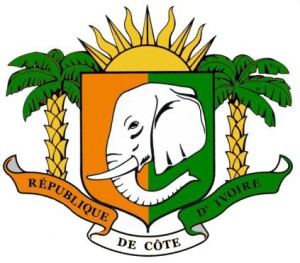 “The specter of a government pursuing investigations and prosecutions of the former regime while blatantly ignoring—or worse, covering up—its own crimes and misdeeds will very likely deepen mistrust across the social spectrum and lay the foundation for future conflict.”
“The specter of a government pursuing investigations and prosecutions of the former regime while blatantly ignoring—or worse, covering up—its own crimes and misdeeds will very likely deepen mistrust across the social spectrum and lay the foundation for future conflict.”
By Jeffrey Smith • Freedom House
Côte d’Ivoire was once a promising model of economic prosperity and stability for West Africa, but in the last decade alone it has fallen prey to two civil wars, untold human misery, and large-scale impunity for perpetrators of human rights violations. The complex problems currently besetting the country are linked to the failure of its leaders to both commit to and successfully foster genuine democratic principles and practices.
The latest manifestation of poor political leadership occurred during the latter part of 2010, when incumbent president Laurent Gbagbo refused to relinquish power following his electoral defeat at the hands of a longtime adversary, Alassane Ouattara. By early December 2010, both men had been sworn in as president in separate, conflicting ceremonies. The stalemate sparked Côte d’Ivoire’s second civil war since 2002, resulting in over 3,000 deaths and the displacement of over a million people before Ouattara finally assumed power in April 2011.
The relative peace that now prevails is tenuous at best, threatened by persistent and deeply rooted political, tribal, and ethnic divisions. The recent discovery of mass graves, mainly located in the western part of the country, has done little to allay fears of renewed violence. The situation is exacerbated by the proliferation of small arms and the desperation caused by widespread poverty.
The UN-backed Muntarbhorn Commission determined that serious violations of human rights and international humanitarian law were committed by both sides during the postelection crisis. A number of important steps have since been taken to foster national reconciliation and ensure that key perpetrators are held accountable. A Truth, Reconciliation, and Dialogue Commission (TRDC) has been established, as has a separate Commission of Inquiry. A newly appointed public prosecutor assumed office in April 2011, and the International Criminal Court (ICC) has been cleared to investigate and prosecute those alleged to have violated international law. Gbagbo, for his part, already sits in The Hague, where he will stand trial before the ICC on four counts of crimes against humanity.
The Obama administration has pledged support to the Ouattara government, hoping to reestablish a normal trade and assistance relationship and provide a sense of stability to a country still reeling from a humanitarian disaster. However, this relationship is premised on Ouattara’s demonstrated commitment to advance national reconciliation, implement measures that decrease ethnic violence, and ensure that human rights violations are impartially investigated.
Unfortunately, the requisite progress on these fronts remains to be seen.
The TRDC is currently languishing with no timetable or clear mandate in place. And the courts have yet to press charges against any pro-Ouattara factions or individuals, while more than 120 Gbagbo supporters have been prosecuted in military and civil courts. There is mounting evidence, collected by rights groups and independent investigators alike, thatOuattara’s forces may have been responsible for some of the most egregious atrocities committed during the crisis, including the massacre of hundreds of civilians in the western town of Duékoué. In another incident, some 50 civilians drowned in the Cavally River near the border with Liberia, allegedly while attempting to escape pro-Ouattara forces. This is not to suggest that Ouattara and his supporters were responsible for a majority of the violence and crimes committed in Cote d’Ivoire during the conflict. But the lack of any charges against Ouattara backers indicates that victor’s justice has so far predominated in Cote d’Ivoire.
The specter of a government pursuing investigations and prosecutions of the former regime while blatantly ignoring—or worse, covering up—its own crimes and misdeeds will very likely deepen mistrust across the social spectrum and lay the foundation for future conflict. Recent events, including the December 2011 legislative elections, have boosted Ouattara’s political leverage and could reinforce the winner-take-all mentality that has pervaded Ivoirian politics for decades. Likewise, Ouattara’s election as chair of the Economic Community of West African States (ECOWAS) in February 2012 has effectively offset outside criticism. And despite the president’s reconciliation rhetoric, some foreign and Ivoirian observers assert that ethnic and political animosities have actually worsened in the last year.
Sub-Saharan Africa is strewn with examples of countries that have endured half-hearted national reconciliation processes, unfulfilled promises of equitable justice, and repetitive cycles of civil conflict. The probability of Cote d’Ivoire falling into this trap will remain high if the Ouattara government fails to change course. Residents of the two areas hit hardest by mass violence—the western part of the country and Abidjan, the de facto capital and largest city—are actively demanding redress and accountability for the chief perpetrators. By pursuing a wholly one-sided campaign for justice, the government risks alienating moderates in Gbagbo’s camp who may be genuinely interested in cooperating on broad reconciliation efforts. One must recall that nearly half—about 47 percent—of the population supported Gbagbo during the last election. Moreover, a small segment of that constituency no doubt has access to arms.
The authenticity of Ouattara’s stated intention to advance peace for all Ivoirians—regardless of political or ethnic background—is in serious doubt at a time when the impartial distribution of justice should be an urgent national priority. It is essential that public officials cooperate in good faith with both domestic and international judicial mechanisms, including the ICC. Until they do, the country will remain perilously unstable, and no one will enjoy the fruits of victory for long.
Jeffrey Smith is Africa Program Officer at Freedom House. This article, republished with permission, originally appeared on that organization’s At Issue blog.